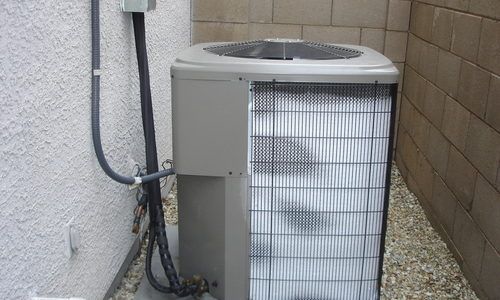One of the most frequent calls I receive in the summer months is “My AC is frozen, and it’s really HOT!! Can you please help?” Of course, we can help when this happens. However, it is important to remember you can almost always avoid a frozen AC by routine maintenance. I see this so frequently during the spring and summer that I thought it was important to write an article about it. The most important thing to remember is: If your air conditioner is frozen inside or outside, turn the system off immediately, and call a professional.
Common Causes Of An AC Unit Freezing
Inadequate Air Flow
Inadequate airflow can have several causes.
- Two of the most frequent are blocking the return air with furniture or boxes and shutting the supply registers to attempt to direct the airflow. The HVAC unit needs to breathe to function properly.
- Inadequate airflow is also caused by poor duct design during installation, or by not properly sizing the ductwork when the equipment is replaced.
It is important to have an HVAC technician trained in duct design help to create a solution if inadequate airflow is causing your HVAC system to freeze. This is also one of the reasons we perform a “Static Pressure Test” on every call. We will get back to this issue a little later on.
Low Refrigerant Charge
When clients call with a frozen HVAC system, they frequently assume that they need more refrigerant. However, a low refrigerant charge is not the only or even the most frequent cause of a frozen air conditioner. A properly functioning and installed HVAC system should never lose refrigerant, as long as the system was properly charged and sealed at the time of installation.
- The only way for a properly installed system to lose refrigerant is if it develops a leak.
- Locating and fixing a refrigerant leak is best left to a professional.
- Remember that overcharging an HVAC system can cause more damage and more expensive repairs than a unit that is slightly undercharged.
If you have an old leaky R-22 system, upgrading to a Puron system may be a better investment than recharging an empty and leaking R-22 System. R-22 is harmful to the environment and is becoming more expensive as this type of refrigerant is being phased out.
Compressor Contactor Failure
Another cause of a frozen HVAC unit could be that the compressor contactor became welded shut.
- If the contactor arcs and welds itself shut, the compressor will not shut off, causing the unit to freeze as well as put additional strain on the compressor.
- Proper annual maintenance can catch a contactor when it is burnt or pitted allowing for the replacement of this component before it causes a major failure on a HOT day.
Dirty Evaporator Coil
If your AC has not been properly maintained the evaporator coil can build up a lot of dust, grime, hair, and other yucky stuff (trust me you don’t want to see it!). When this buildup blocks or restricts airflow, a unit may freeze up.
- Having routine annual maintenance on your HVAC system as well as changing filters regularly can almost always prevent this type of failure. Remember that the accumulated “stuff” on your coil was in the air you breathe.
If your coil is dirty and causing your system to fail, be leery of anyone who tells you they can clean the coil in place. This practice is not the most effective way to clean the evaporator coil for several reasons.
- One reason is that you simply cannot get the deeply embedded grime out without “pulling” the coil to clean it thoroughly.
- Another reason to remove the coil for cleaning is the potential to damage electrical components while cleaning, as liquids used for cleaning and electricity do not mix well and can be dangerous.
- Lastly is the potential to clog the drain lines with that nasty gunk which can cause major water damage if it backs up.
Dirty Filter
The number one cause of a frozen HVAC unit is a dirty filter. I know it seems incredible but dirty filters block airflow, and restricted airflow causes your air conditioner to freeze.
We have come full circle. Airflow is critical to your HVAC system. It is very important to replace your air filter regularly. Now I cannot tell you to change your filter every month or every three months or 6 months. The frequency that your filter needs to be changed depends on many factors including;
- What type of filter is being used
- If there are pets or children
- If your house is in the city or the country
- How often your system is running
- The time of year and the list of variables goes on and on.
What I say is, “It’s not a waste of time or money to change your filter regularly.” It’s best to check your filter on a monthly basis and change as needed.
Key Information To Keep In Mind
As you can see, the main causes of your HVAC system freezing up is related to improper maintenance as dirt and gunk build up and restrict airflow. Although it is important to have the AC properly charged with the correct refrigerant type, low refrigerant is less likely to be the cause of your HVAC system ice-block. It’s dirt!
For AC services in Amarillo, contact Gary's Heating and Air Conditioning!

